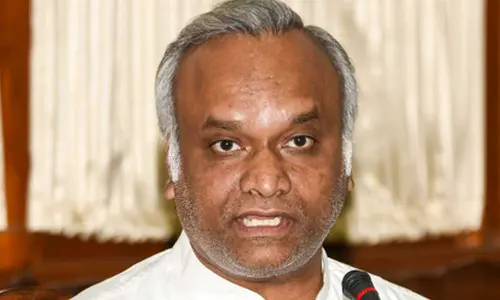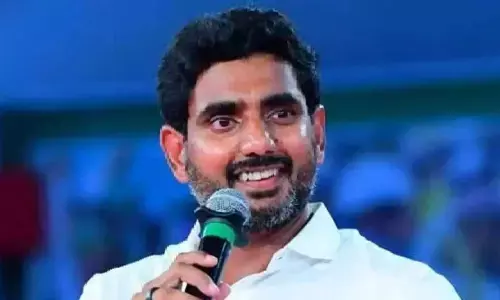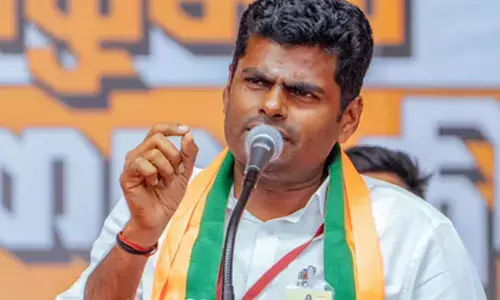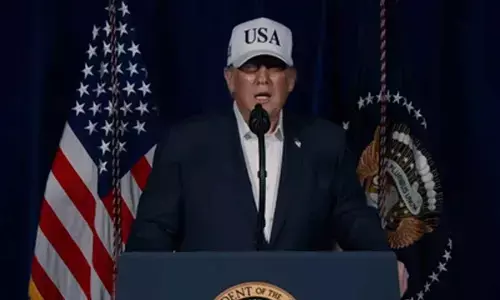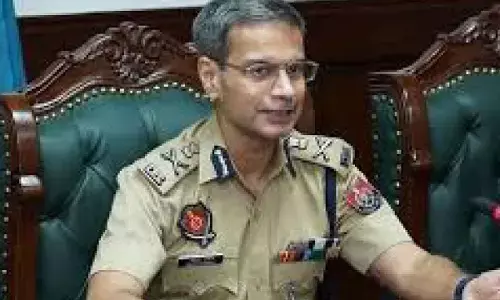Impact of NEP on industrial sector

Pallavi Krishna Pasupuleti
NEP emphasises on culture of physical health, mental health and emotional health, it will be acting as a strong foundation for bringing out the best in the students. As one of the focuses of NEP is on holistic development, sharpening of the brain's creativity will be at its best. Industries are on a lookout for innovative and sustainable solutions. Holistic development of children will save us from routine outdated and cliched thinking.
The National Education Policy has been implemented across the country. As this policy is concerned with education which is an important stepping stone for every sector, likewise industrial development and progress can also be gauged with the successful implementation and execution of this policy.
But before all this the questions that pop up in the mind is whether this policy will be able to cater to the needs of industrial progress in the coming years. What we teach our children today will help them grow and nurture those educational impacts in the long run which eventually will be used in different segments of life, may it be corporate offices or industries.
Speaking with The Hans India Pallavi Krishna Pasupuleti, CEO of Tripura Construction shared her views on NEP.
She shared her point of view on NEP. NEP emphasises on culture of physical health, mental health and emotional health, it will be acting as a strong foundation for bringing out the best in the students. As one of the focus of NEP is on holistic development, sharpening of the brain's creativity will be at its best.
Industries are on a lookout for innovative and sustainable solutions. Holistic development of children will save us from routine outdated and cliched thinking. Indian students are bright already; an added support of overall growth of student's mind and body will lead to greater and better productivity and creativity.
As industries will be marching in lines with latest technologies like AI and machine learning, the human interference will be less and that less will have to be very strong and should be mentally strong to deal with machines and less of human, for which one has to be emotionally self manageable and self sustained.
As learning from schools becomes an integral part of the future way of thinking and living, this kind of foundation will build an unshakable human. As NEP focuses on Implementation of vocational training and experiential learning it will be easier for students to catch up with industry practices with much ease. They become easily adaptive which is an important skill for survival in any environment.
It says reimagining vocational education, NEP is giving absolute freedom to organisations, educational institutions and parent-student community to come up with new ideas and solutions for better access to experiential learning. This might help industries also in getting newer and fresh ideas- industries can also reimagine the way of working.
NEP emphasises on enjoyable learning and life skills which will encourage stress free living/working culture. Helps students entering industries at a later stage of their lives handles stress in a cooler manner and also minimises organisation politics and misbehaviour.
Industrial development laced with judicious use of this policy can work very well together. Speaking of its impact, she said that NEP emphasizes attending to new requirements based on changes in ecology and living patterns. Which means newer study combinations and courses like climate engineering or studies related to pandemics, population dynamics etc.
will be encouraged to meet industry needs. There is a saying that future generations should correct the mistakes made by previous generations, this will be possible with the various sensable provisions of NEP 2020 (like holistic and integrated learning and expericial and vocational and innovative learning).
NEP adapts to Changing Global ecosystem, as it focuses not only on learning but also how to learn.
There is a focus on critical thinking and problem solving, which is crucial for any industry. Also less content and more of a common sense approach will be tapped.
Conceptual understanding instead of memorisation of information will make students more dynamic and relevant to modern times.
Practical application of any theory is required to reaffirm the status of the theory. Speaking of the role of this policy in making this come true she explained that this policy is making internships mandatory and also encouraging all stakeholders to reimagine it to make it possible. Also, encouraging online courses.
Special education zones are also given priority to develop internship activities. Vocational training will be rebranded and seen as a common practice for both degree and diploma students. Skills hubs and skill labs will be trending soon. For instance, the T-HUB of Hyderabad will be playing a key role in interning and nurturing technology ideas as mentioned by KTR. Newer Partnership models will have to be designed by stakeholders like industries, NGOs and education institutions to get an actual feel of the skill.
She also discussed the role of automation and its impact on job creation in the future. She explained that Working on Research was very minimal for a country like India, which was more operating like a factory. With Automation massive research will happen leading to innovation, creativity and sustainable Solutions. NEP states that India spends only 0.69% of GDP on research innovation whereas countries like Israel and South Korea spends 4.3% and 4.2% respectively. Mind Sciences related jobs are speculated to be on the rise.
-Holistic and wellbeing related skilled jobs will be taken up more. For instance in health care robotic operations may be on rise soon with automation, but NEP focuses more on preventive healthcare like ayurveda which is neglected in INDIA, likewise these forgotten sciences, art related jobs will re-live.
Some fields require more semi-skilled personnel rather than full skill. Clarifying whether this policy has something for this type of workforce she said that NEP focuses on finding out skill gap analysis and mapping of local opportunities, across various industries. For this MHRD will constitute a National Committee for the Integration of Vocational Education (NCIVE), consisting of experts in vocational education and representatives from across Ministries, in collaboration with industry to oversee this effort. Construction industry being the second largest employer, this sector will be given attention provided the industry people demand for it and encourage students by giving good lucrative rewards for the skills.
Additionally, B Voc degrees will also be available to other Bachelor degree programmes. For instance, a B.Comm grad can take up an additional B. Voc course is like being an Electrician parallely.
She insisted that as a corporate social responsibility towards a better future, organisations should set up skill development hubs and not just do blood donation camps for instance. See that's kind of a reimagining about how vocational training can be imparted. NEP reiterates and gives all provisions for collaboration with and amongst various stakeholders to make NEP a success overall.


